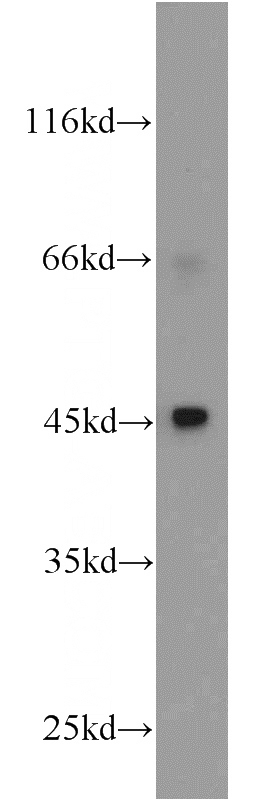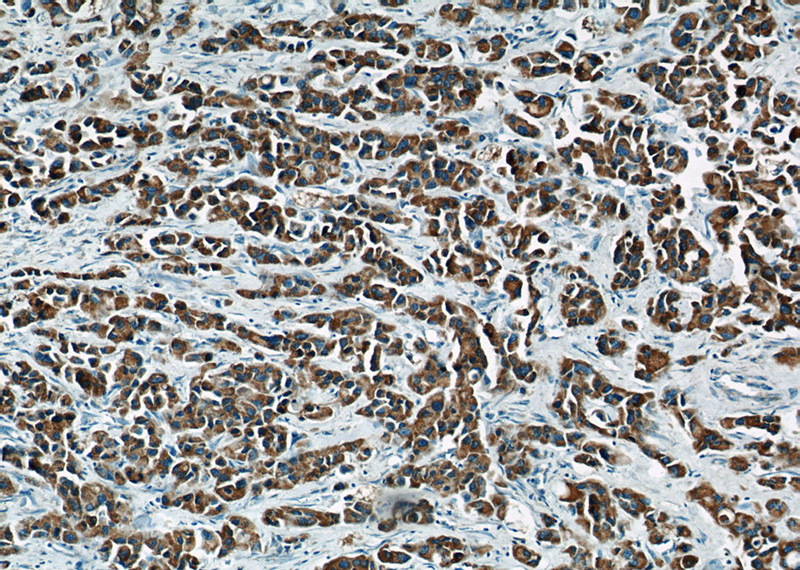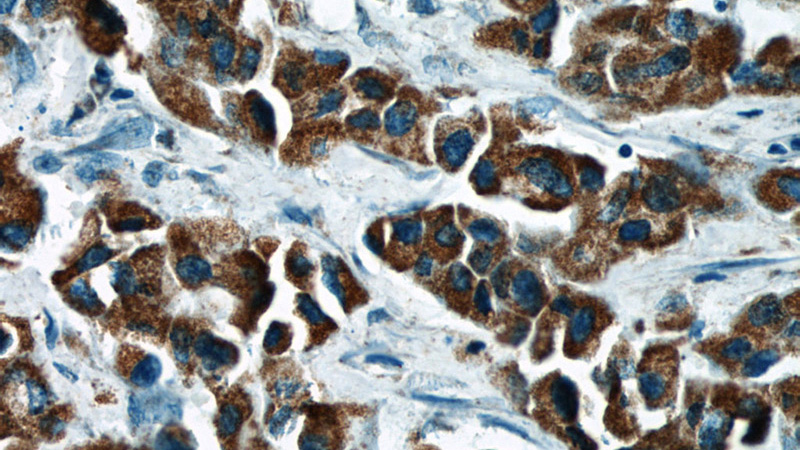-
Product Name
MEK4 antibody
- Documents
-
Description
MEK4 Rabbit Polyclonal antibody. Positive WB detected in RAW264.7 cells, HeLa cells, MCF7 cells, mouse brain tissue, rat brain tissue. Positive IHC detected in human breast cancer tissue, human liver cancer tissue, human skeletal muscle tissue. Observed molecular weight by Western-blot: 44 kDa
-
Tested applications
ELISA, WB, IHC
-
Species reactivity
Human, Mouse, Rat; other species not tested.
-
Alternative names
JNK activating kinase 1 antibody; JNKK antibody; JNKK1 antibody; MAP kinase kinase 4 antibody; MAP2K4 antibody; MAPK/ERK kinase 4 antibody; MAPKK 4 antibody; MAPKK4 antibody; MEK 4 antibody; MEK4 antibody; MKK4 antibody; PRKMK4 antibody; SAPK/ERK kinase 1 antibody; SEK1 antibody; SERK1 antibody
-
Isotype
Rabbit IgG
-
Preparation
This antibody was obtained by immunization of MEK4 recombinant protein (Accession Number: NM_003010). Purification method: Antigen affinity purified.
-
Clonality
Polyclonal
-
Formulation
PBS with 0.1% sodium azide and 50% glycerol pH 7.3.
-
Storage instructions
Store at -20℃. DO NOT ALIQUOT
-
Applications
Recommended Dilution:
WB: 1:200-1:2000
IHC: 1:20-1:200
-
Validations

RAW264.7 cells were subjected to SDS PAGE followed by western blot with Catalog No:112646(MAP2K4 antibody) at dilution of 1:600

Immunohistochemical of paraffin-embedded human breast cancer using Catalog No:112646(MAP2K4 antibody) at dilution of 1:50 (under 10x lens)

Immunohistochemical of paraffin-embedded human breast cancer using Catalog No:112646(MAP2K4 antibody) at dilution of 1:50 (under 40x lens)
-
Background
MEK4 is also named as JNKK1, MAP2K4 , MKK4, PRKMK4, SEK1, SERK1, SKK1 and belongs to the protein kinase superfamily. MEK4 is a member of the mitogen-activated protein kinase family, originally identified as a kinase involved in the stress-activated protein kinase pathway by directly phosphorylating c-Jun NH 2-terminal kinase. This protein has 2 isoforms produced by alternative splicing.
-
References
- Liu J, Xu D, Wang Q, Zheng D, Jiang X, Xu L. LPS induced miR-181a promotes pancreatic cancer cell migration via targeting PTEN and MAP2K4. Digestive diseases and sciences. 59(7):1452-60. 2014.
Related Products / Services
Please note: All products are "FOR RESEARCH USE ONLY AND ARE NOT INTENDED FOR DIAGNOSTIC OR THERAPEUTIC USE"
